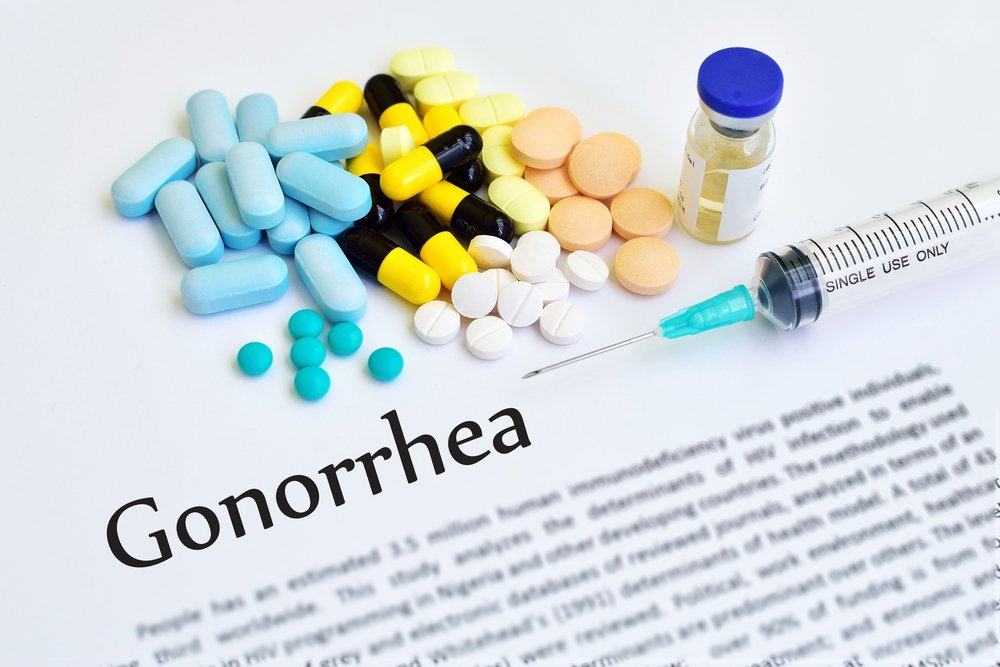Contents:
- Medical Video: The Grand Theory of Amazon
- 1. Please select the product
- 2. Wash your face too often
- 3. Hot water? No!
- 4. Exfoliating too often
- 5. Rinse in a hurry
- 6. Hazardous chemical products
- 7. Rubbing habits
- 8. Use moisturizer when the skin is dry
- 9. Only rely on expensive products
- 10. Skip the face oil
Medical Video: The Grand Theory of Amazon
Washing your face is one of the simplest rituals in everyday life. Unfortunately, many of us are still wrong in doing so. Yes, you might not know, but washing your face if done carelessly actually has the potential to damage the skin or even make it spotty.
Is the method of washing your face correct? Here are 10 of the most common "big sins" when washing your face.
1. Please select the product
Do not just make a facial cleaner just for the reason of a friend's recommendation or tempted by advertising on television. Whether it's black spots, stubborn pimples, or excess oil, we all have complaints about each skin. Get to know your type of facial skin and what are the main problems you face, so you know what cleaning products are right for you
A good facial cleanser must completely remove all types of dirt, makeup residue, and sticking dust, but do not strip too much of your natural oils and healthy skin cells. Choose a cleaning product that is not too light (which makes you feel you have to wash your face twice before it feels clean), but also not too hard (makes your face irritated or dry and tight after washing your face).
2. Wash your face too often
Washing your face repeatedly can make your face cleaner? Wrong. The more often you wash your face it will irritate the skin and stimulate excess oil production (sebum). Limit the ritual of washing your face twice a day, morning and night. If you are just active in the room, don't wear makeup, and don't sweat too much, just rinse your face with warm water at night.
Does this mean you can skip washing in the morning? Certainly not. When you sleep, your facial skin performs a ritual of self-cleaning, encouraging waste and residual impurities through the sweat glands and pores. There is still trash residue left on your skin in the morning. So yes, you have to wash your face twice a day.
3. Hot water? No!
Wash your face with hot water to open the pores, then rinse with cold water. Maybe you often hear this "advice", or do you routinely do it? Actually, the pores do not have muscles to open and close. Hot water will actually make the skin dry and irritated. Leave this habit and replace hot water with warm water to clean the face.
4. Exfoliating too often
When your facial skin is in trouble, it seems natural to "strike back" with a series of skin care so that the face returns smooth and bright. One of them is exfoliation or exfoliation.
Exfoliation does need to be done regularly about 1 to 3 times a week. But remember, don't overdo it. A scrubbing scrub or exfoliant can cause dry skin, irritation, inflammation, and even infection. All this damages your skin's ability to fight the bacteria that cause acne.
Tip: Finger is a natural exfoliator that is very effective at removing dead skin. Use your fingers to apply exfoliator cream, instead of using a damp towel, to prevent the skin from being pulled and scratched. For best results, massage the product in a soft circular pattern starting from the neck and slowly moving up.
5. Rinse in a hurry
Just like a quick shower that does not make you feel clean and fresh, being too rushed to wash your face is also not effective in getting rid of dirt and oil. To get facial skin that always looks excellent, take at least two minutes to wash your face. Concentrate on the area around the nose and forehead which tends to be oily.
Tip: If you are using a milk cleanser, wipe the cleanser slowly with an upward circular motion on the entire face dry. Do it for at least thirty seconds so the cleanser can break down the oil and the rest of the makeup. Afterwards, take the cleanser once again and repeat the massage. The second stage of cleanser will help dissolve any residue left in the first stage. Finally, rinse with water until clean.
6. Hazardous chemical products
Learn the composition contained in your cleaning product. Avoid harmful cosmetic ingredients, such as parabens, fragrances, and coloring. Also avoid sodium lauryl sulfate (SLS), a high-concentration detergent commonly used for cleaning dirt machines, floor cleaners, and car shampoo. SLS is a common risk factor for allergic reactions and facial skin irritation.
7. Rubbing habits
Whatever your skin type, it's important to be careful when applying cleansers, masks, or exfoliants. Do not rub the cleanser too tightly so that the skin is attracted. Do not also rub a towel on your face when you dry your face. Both of these will threaten the elasticity of facial skin. Let the face dry out by itself or pat face with a clean towel.
Tip: distinguish special towel face with a bath towel, especially with someone else's. Towels are the main place for bacteria to breed.
8. Use moisturizer when the skin is dry
This final step may be one of the most important stages in a facial care routine. Moisturizers will seal your skin's natural moisture and act as a barrier against toxins, free radicals, and foreign particles that are harmful to the skin. Apply moisturizer immediately after washing your face when the face still feels moist, and gently massage the face. Always massage in an upward motion to avoid the skin being attracted.
The same applies to serums and other facial care products. Waiting until your skin is completely dry will make the active ingredients contained in the product more difficult to absorb properly and make the skin feel sticky and oily.
9. Only rely on expensive products
Expensive is not necessarily better. Instead of spending a lot of money hunting facial cleansers branded which is definitely not suitable for dealing with your skin problems, it's better to use simple cleaners made from natural ingredients and invest your money for beauty products that will provide long-term benefits for your face, such as vitamin serum and moisturizer.
10. Skip the face oil
Many consider that oil is the main enemy for oily skin. Cosmetologists and dermatologists say the opposite. Oil is very friendly for all skin types, because basically, oil will dissolve if you meet with fellow oil. Oil will break down dirt and acne-causing bacteria that stick to the skin. Oil also helps maintain skin moisture, thus balancing the pH level of facial skin.
Putting oil in your beauty regime is not difficult. Choose a face oil on the market that contains natural ingredients, or enough to buy the oil of your choice. Almond oil, grapeseed oil, sunflower seeds, and olives are recommended by beauty bloggers.
Tip: apply a little oil to the face and gently massage, let it absorb. Clean the remaining oil with a soft cloth dampened in warm water.












